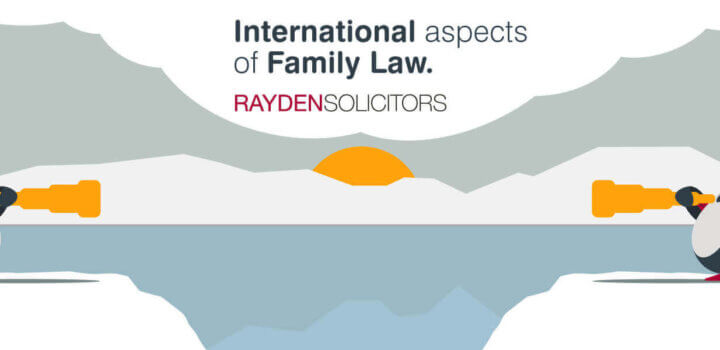Our names form an integral part of our identity, and following a divorce, some people will be confronted with the dilemma as to whether they should change their surname. Whilst for some this will be an obvious decision to make, others will feel conflicted.
It is important to note that following a divorce, your surname will not automatically revert to your previous name. If you wish to change your surname, you will need to take active steps to do so.
In this blog post, we consider the different factors that may influence your decision to change your name and the process you will need to follow.
Understanding the options: retain or change your name
There is no obligation to change your name following your divorce, it is a very personal decision and will depend on your own particular set of circumstances.
You may wish to retain your married name for various reasons, for example:
- Where children are involved, you may wish to share the same surname as your children, and therefore retain the family name.
- You may have built a professional reputation using your married name, and may not want to lose that aspect of your identity.
- Following a long marriage, your married surname may have formed part of your personal identity that you do not wish to give up.
- You may wish to avoid the hassle of changing your surname.
Alternatively, you may wish to revert to your previous surname. Amongst others, this could be influenced by the following factors:
- Changing your name could signal a fresh start and help you to gain closure in your relationship.
- A name change could also help you to establish a clean break.
- If you start a new relationship, you may feel more confident doing so with your previous name.
There are of course many other factors that may influence your decision, and it is important to give each factor due consideration.
The process and requirements of changing your name
You can start using a new name without following a legal process. You will just need to tell people what you would like to be called and adopt that name going forward.
Documentary Evidence:
Most record-holders such as banks and the passport office will require documentary evidence of your name change.
If you wish to go back to your original name, most record-holders will accept documentary evidence in the form of your marriage certificate and final order.
To revert to your previous surname on your passport, you will need to provide the following documents:
- your birth certificate;
- a statement signed by you saying you have gone back to a previous surname (for example your maiden name) ‘for all purposes’;
- a document that shows you are using your new name (for example a payslip, or a letter from your local council); and
- your marriage certificate.
Deed Poll:
If record-holders do not accept the above documents as evidence of a name change, or you wish to change your name to something other than your previous name, you can obtain a deed poll. This is a legal document that allows you to change any part of your name.
You can make either an ‘unenrolled’ deed poll, or you can apply for an ‘enrolled’ deed poll.
An ‘unenrolled’ deed poll is also known as a change of name deed. This is a legal document which allows an individual to change their name; it must be signed in the old and new name, signed by a witness and dated. If you would like assistance with preparing an ‘unenrolled’ deed poll, please contact us and speak to one of our divorce lawyer specialists.
Some organisations, including some banks, will only accept an ‘enrolled’ deed poll as evidence of a name change. To obtain an ‘enrolled’ deed poll you can apply in writing to the Royal Courts of Justice, submitting the following documents:
- Change of Name Deed for an Adult Form;
- Statutory Declaration for an adult; and
- Notice for the London Gazette for an adult.
It will cost £42.44. Please visit the government website for more information on how to make this application.
Can I change my name during the divorce process?
You can change your name at any stage of the divorce process. However, in order to change your name before obtaining your final order, it will be necessary to obtain a deed poll. This will not affect the divorce proceedings.
Which relevant parties do you need to inform of your name change?
Once you have decided you are going to change your name you should inform friends, family and colleagues of the name you wish to be called.
You will also need to update official documents. Below is a non-exhaustive list of organisations that you are advised to contact if you change your name:
- The passport office
- Banks and financial institutions
- The DVLA
- HMRC
- Your employer
- Your pension provider
- Student loans companies
- Your mortgage lender/landlord
- Your utility providers
- Any relevant insurance providers
- Any relevant broadband and TV providers
- The electoral roll
- Your local authority
- Your doctors, dentist and any other relevant healthcare providers
Will my title change following the divorce?
There is no legal process required to change your title, you can adopt the title with which you feel most comfortable.
What are some common challenges and their solutions?
Obtaining the necessary documentation:
- If you wish to change your name with documentary evidence, you will need to ensure that you have a copy of each document. If you do not have a copy of your birth certificate or marriage certificate, it is straightforward to apply for a replacement certificate. This can be done via the government website; certificates cost £11 and are usually sent 4 days after you apply.
Photo ID:
- Certain transactions and services will require the provision of a photo ID and proof of your address, i.e. buying or renting a property. It is therefore important to ensure that once you have decided to change your name, you act swiftly to obtain a photo ID and proof of your address which reflects your name change.
There is no right or wrong answer when it comes to deciding whether to change your name after divorce. It is important to consider the different factors carefully, and ultimately do what feels right for you.
If you would like to discuss any of the issues raised in this blog, please do not hesitate to contact Rayden Solicitors for confidential family law advice.














